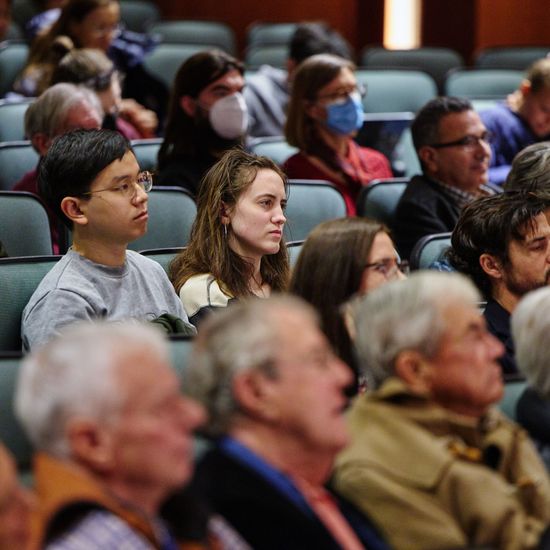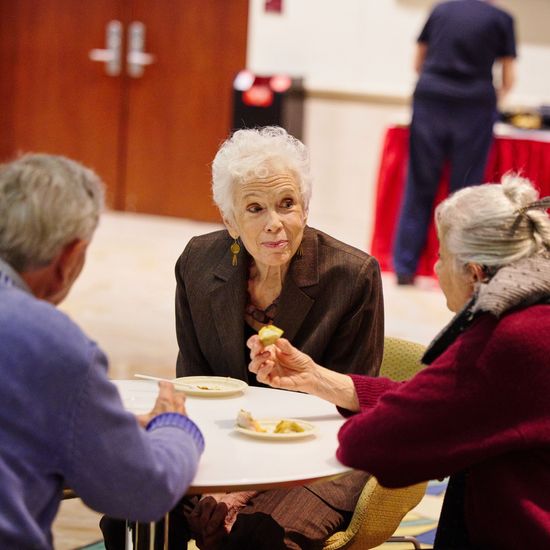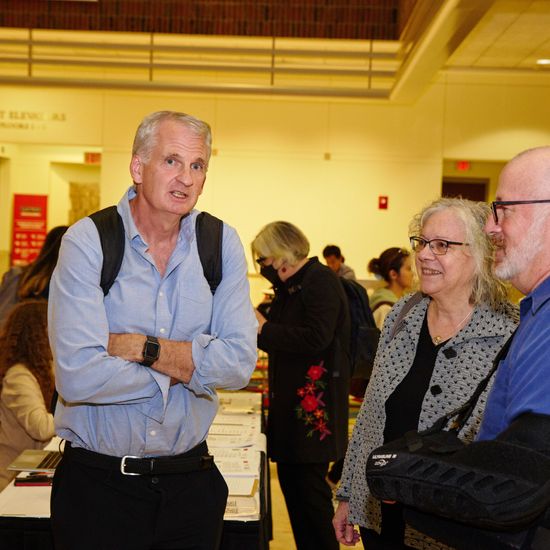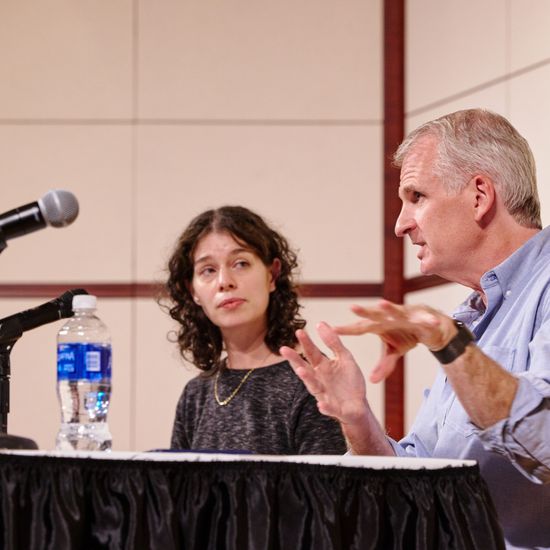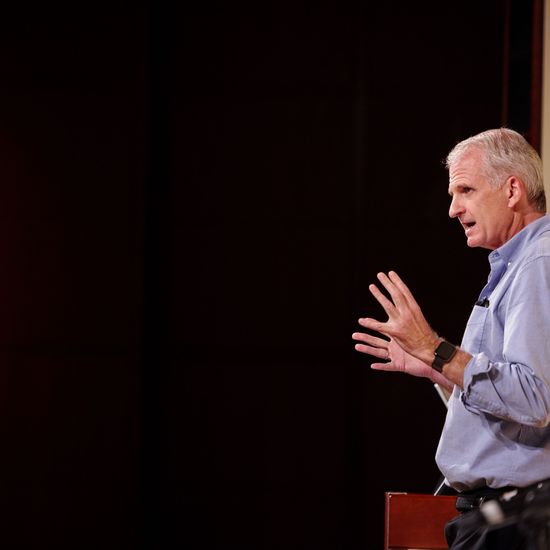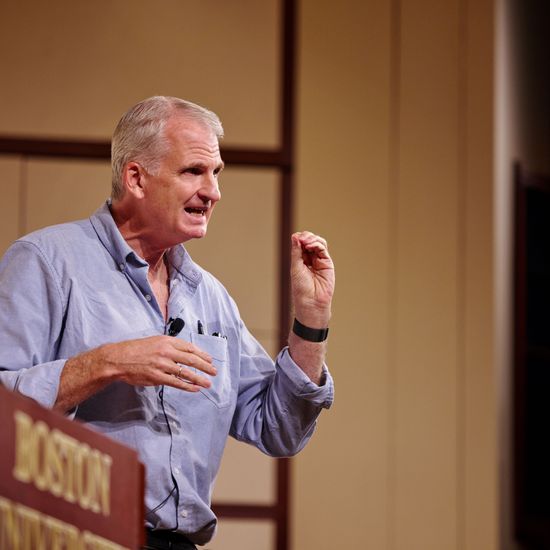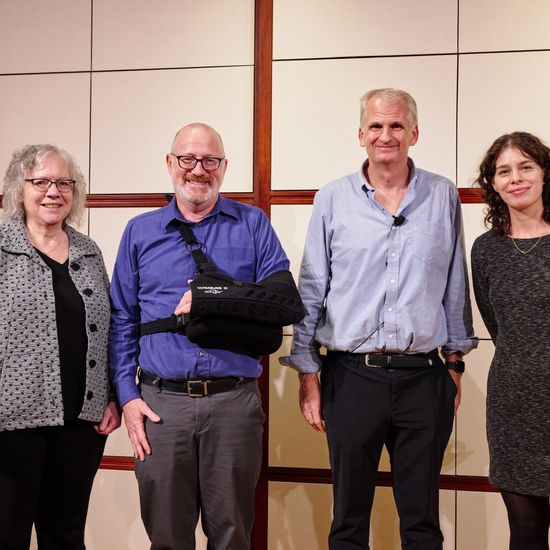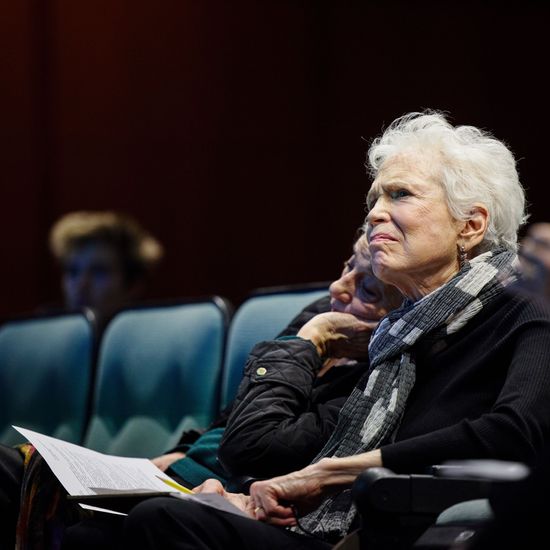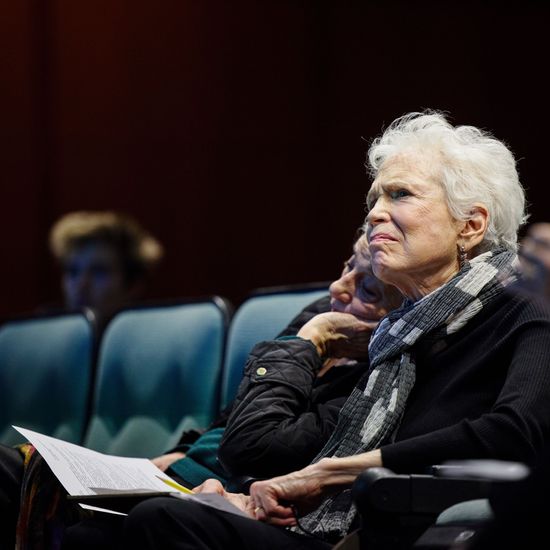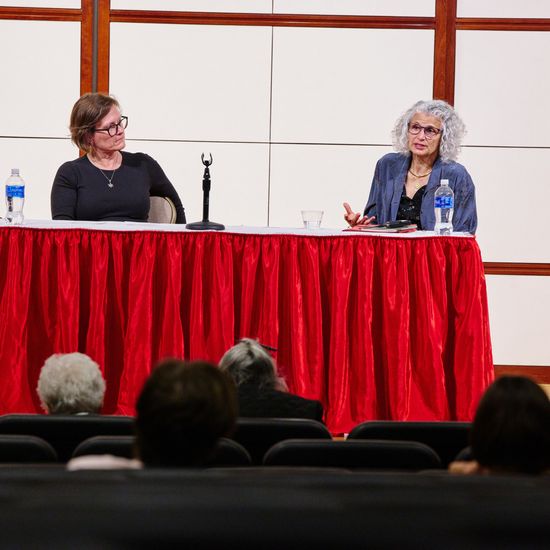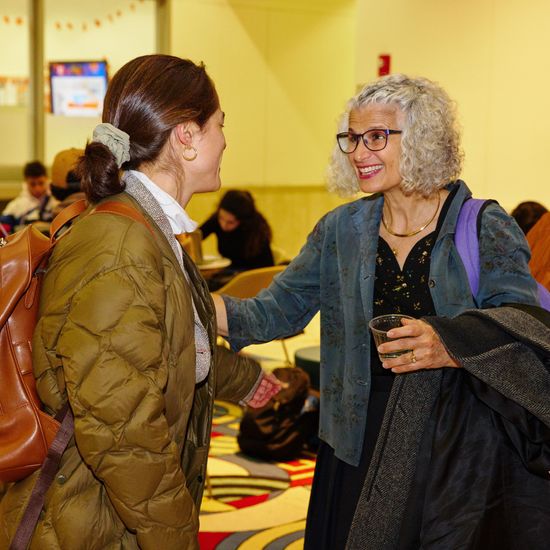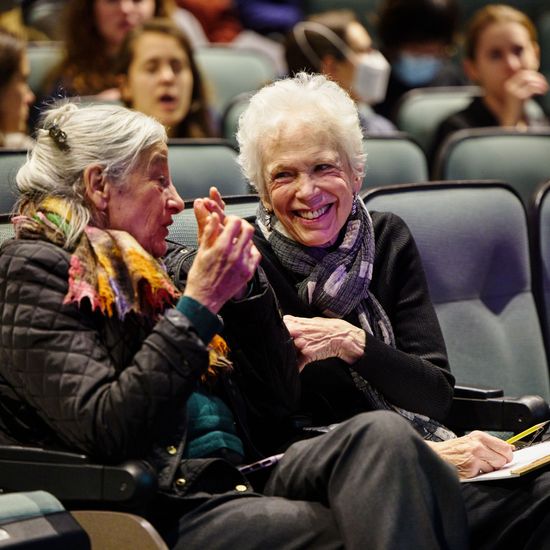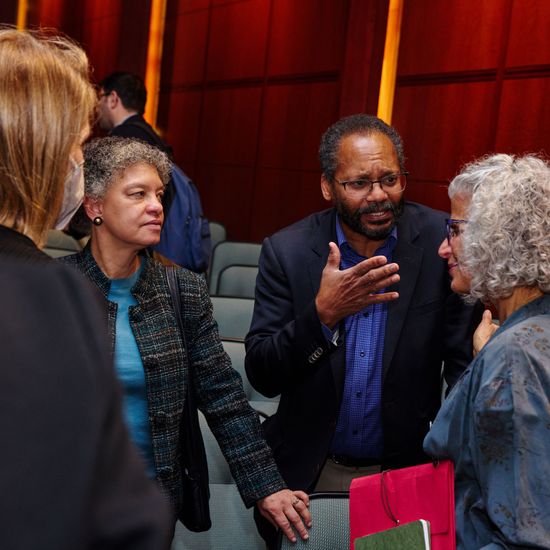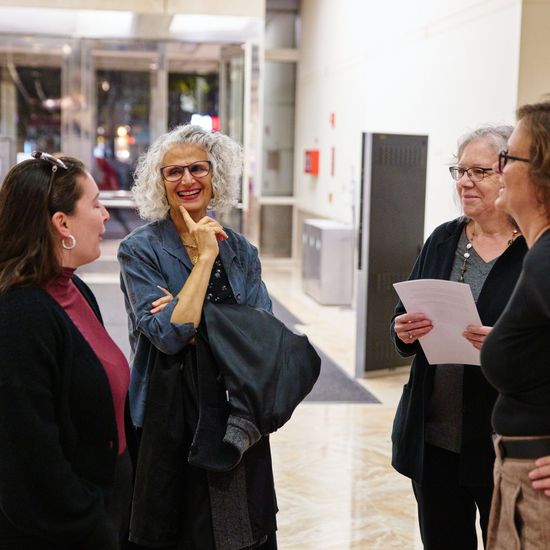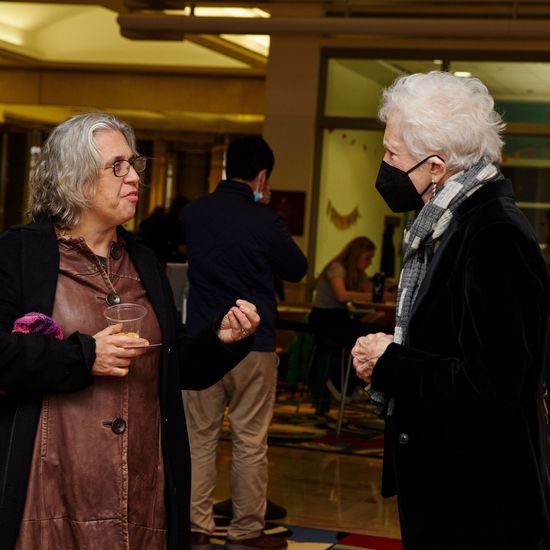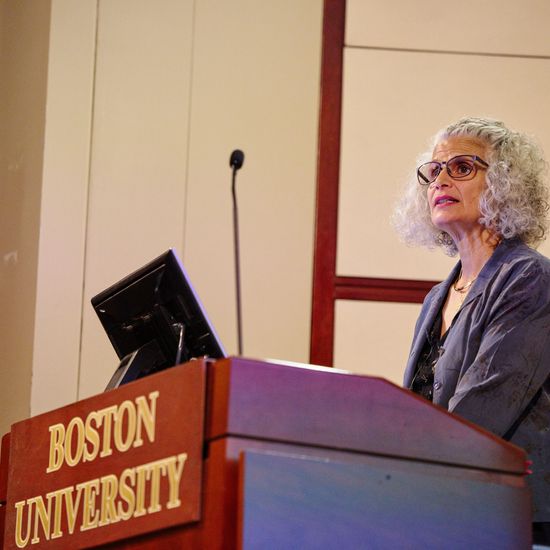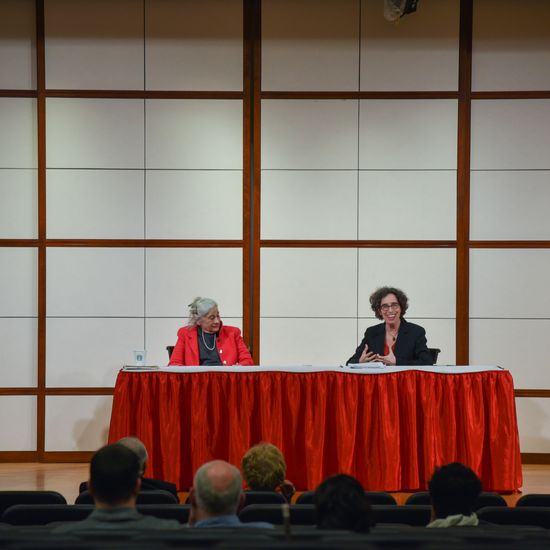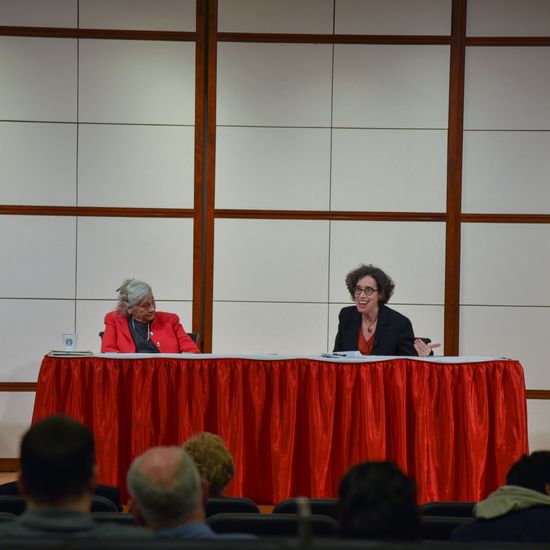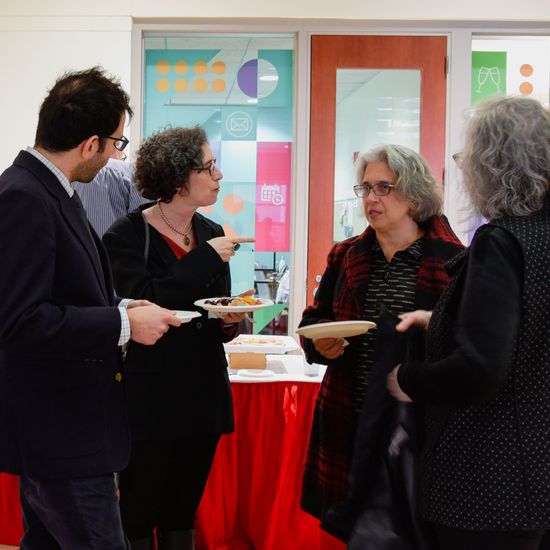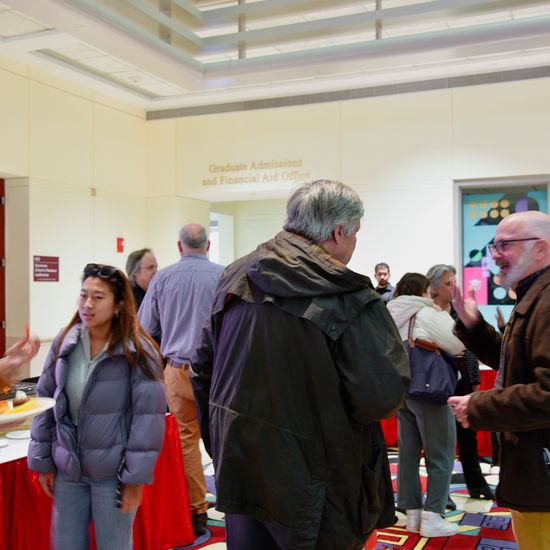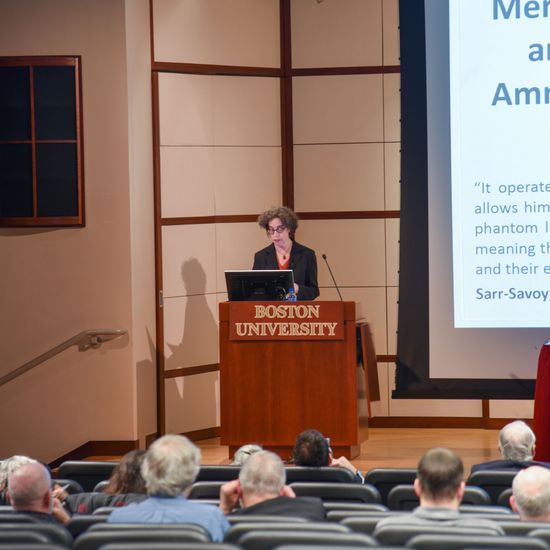The 2022 Elie Wiesel Memorial Lecture Series upheld the esteemed tradition of honoring the profound legacy of Elie Wiesel, a Holocaust survivor and Nobel laureate. With the overarching theme of “Justice and Co-Witnessing: Our Responses to Humanitarian Crises,” this year’s Lecture Series strived to delve into topics closely aligned with Elie Wiesel’s influential work.
The inaugural lecture featured the renowned historian, Professor Timothy Snyder, who offered a compelling analysis of the ongoing situation in Ukraine, contextualizing it within the framework of historical and contemporary genocides. Professor Irene Kacandes delivered the second lecture, introducing the powerful concept of “co-witnessing,” which entails respectfully listening to and sharing the narratives of individuals who have endured oppression. Finally, Professor Leora Bilsky delivered the concluding lecture, illuminating the challenges faced by Jewish scholars after World War II and Kenyan and German activists in seeking restitution for looted books and cultural artifacts.
Through thought-provoking discourse and engaging lectures, the 2022 Elie Wiesel Memorial Lecture Series effectively advanced the exploration of justice and co-witnessing as responses to humanitarian crises. These three lectures stimulated meaningful discussions among both the academic community and the general public, fostering heightened awareness of paramount issues.For those who missed the live sessions, we are pleased to announce that the recorded live streams of the 2022 Elie Wiesel Memorial Lecture Series are now available on our YouTube channel.
October 26:
Timothy Snyder on The War in Ukraine & the Question of Genocide Featuring
In a momentous event on October 26, 2022, the Elie Wiesel Center for Jewish Studies at Boston University launched a new major in Holocaust, Genocide, and Human Rights Studies. To mark this significant milestone and pay homage to the enduring legacy of Elie Wiesel, we organized the inaugural Elie Wiesel Memorial Lecture featuring esteemed historian Professor Timothy Snyder. His captivating address, titled “The War in Ukraine and the Question of Genocide,” served as a catalyst for intellectual exploration and engaged our community in critical discussions.
Professor Snyder’s lecture delved into the genocidal language and actions surrounding Russia’s invasion of Ukraine. Drawing upon his expertise in Eastern Europe and the Second World War, he shed light on the historical context and emphasized the importance of labeling these actions as genocide. He powerfully conveyed that even if prosecution may not be possible, recognizing these atrocities as genocide is crucial for remembrance and acknowledgment.
The lecture successfully engaged both the academic community and the public, fostering meaningful discussions on justice and co-witnessing in the face of ethical crises. Participants provided overwhelmingly positive feedback, highlighting the lecture’s impact in raising awareness and promoting critical dialogue.
The event benefited greatly from the expertise of Professor Alexis Peri, the Director of Graduate Studies and an Associate Professor in the History Department at BU, who served as the moderator and brought a wealth of knowledge and insight to the discussion.
This lecture was made possible through a collaborative partnership with the Center for the Study of Europe. We appreciate their invaluable support in organizing this event.
About the Speaker: Dr. Timothy Snyder is a professor of history at Yale University with expertise in Eastern Europe and the Second World War. He is the author of renowned books, including Black Earth: The Holocaust as History and Warning, On Tyranny: Twenty Lessons from the Twentieth Century, Bloodlands, and The Road to Unfreedom: Russia, Europe, America.
About the Moderator: Dr. Alexis Peri is the Director of Graduate Studies and an Associate Professor of History at Boston University who specializes in the history of modern Russia and Eastern Europe, particularly the Soviet period.
November 9:
Professor Irene Kacandes on Co-Witnessing & Social Justice
Professor Irene Kacandes delivered a captivating lecture titled “Co-Witnessing and Social Justice: Our Response to Humanitarian Crises” as part of the second Elie Wiesel Memorial Lecture Series. The event, which took place on November 9, 2022, was moderated by Professor Ingrid Anderson.
During her lecture, Professor Kacandes introduced the concept of “co-witnessing,” which refers to how individuals who were not directly oppressed can support those who were by respectfully listening to and sharing their stories. She stressed the importance of presenting someone’s experiences in their own words without appropriating their pain or centering one’s own learning experience. According to Professor Kacandes, this approach allows for the genuine respect of the original experiences of those impacted by oppression.
Professor Kacandes also explored our roles and responsibilities in engaging with humanitarian crises. She discussed strategies for assisting victims of injustice, highlighting the significance of active listening, genuine compassion, thorough research, humility regarding our own limitations, and the proper recognition of the actual victims rather than appropriating their victimhood. She also touched upon various domains where co-witnessing can occur, such as literature, documentaries, journalism, and public speeches.
The lecture gave the audience valuable insights into how individuals can engage with humanitarian crises and fulfill their ethical responsibilities while also considering strategies for supporting victims of injustice.
About the Speaker: Dr. Irene Kacandes teaches German and Comparative Literature at Dartmouth College. She has authored several influential monographs, including Let’s Talk About Death: Asking the Questions that Profoundly Change How We Live and Die (2015).
About the Moderator: Dr. Ingrid Anderson is the Elie Wiesel Center for Jewish Studies Associate Director and a Senior Lecture in the CAS Writing Program. Her expertise lies in modern and contemporary Jewish theology, philosophy, and political thought.
April 3:
“The Question of Restitution: From Post Holocaust to Post Colonial Struggles” with Professor Bilsky
Professor Leora Bilsky delivered the final lecture of the 2022 Elie Wiesel Memorial Lecture Series on April 3rd. Her talk, titled “The Question of Restitution: From Post Holocaust to Post Colonial Struggles,” discussed the challenges faced by two victim groups: Jewish scholars after World War II and Kenyan and German activists. These groups struggled to create inventory lists for the large-scale restitution of looted books and cultural artifacts, challenging the traditional conception of restitution in legal discourse.
The lecture explored how both groups composed “inventory lists” to change history’s direction and reclaim lost cultural heritage. Through explicit documentation, they sought to make visible the absences caused by the systematic attacks on their culture. The talk highlighted the bottom-up mobilization efforts of the victim groups and their challenge to the conventional paradigm of restitution advocated by lawyers and museum gatekeepers. Professor Bilsky argued for a reparative framework for transitional justice that goes beyond a private property conception of restitution and instead emphasizes the ethical creation of new relationships between the looters and the looted and between victim groups and their cultural heritage.
Professor Bilsky’s lecture provided a thought-provoking examination of the complex issue of restitution and its implications in post-Holocaust and post-colonial contexts. This event concluded the year’s lecture series by exploring crucial examples of how justice and co-witnessing in response to humanitarian crises can shift existing paradigms of reparation.
This lecture was made possible through a co-sponsorship with the Center for the Study of Europe and was thoughtfully moderated by Professor Pnina Lahav.
About the Speaker: Leora Bilsky is the Benno Gitter Chair in Human Rights and Holocaust Research at Tel Aviv University, Faculty of Law, and Director of the Minerva Center for Human Rights. She has published extensively on law and the Holocaust, transitional justice, political trials, criminal international law, and feminist legal theory and is currently working on the history of genocide and cultural restitution.
About the Moderator: Pnina Lahav is a Professor of Law, Emerita, and a member of the Elie Wiesel Center for Jewish Studies at Boston University. Her fields of expertise are constitutional law, first amendment law, and legal history. Her biography of Golda Meir, titled The Only Woman in the Room: Golda Meir and Her Path to Power, is part of the 2022-2023 book picks of the Jewish Women’s Archive.
